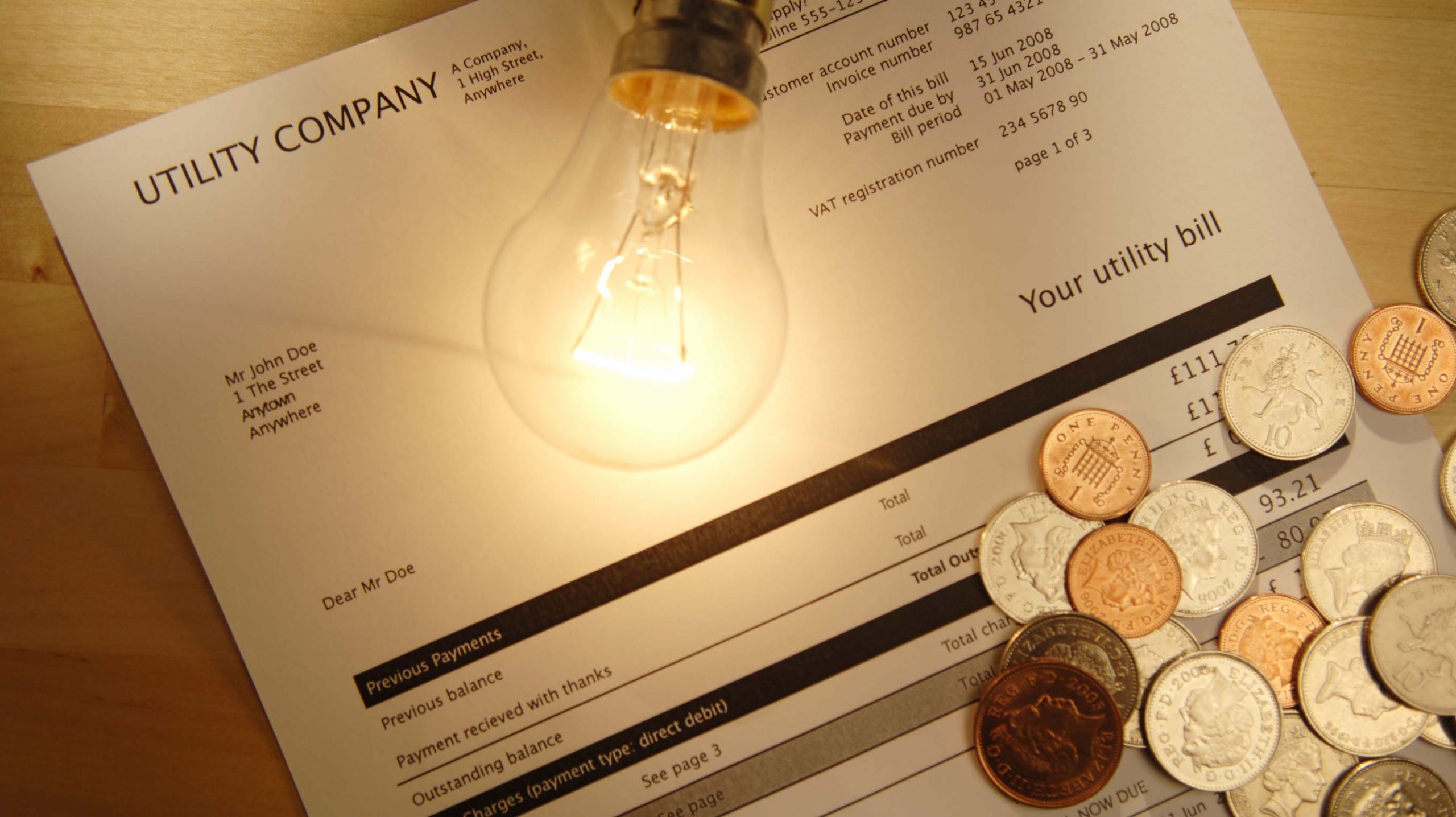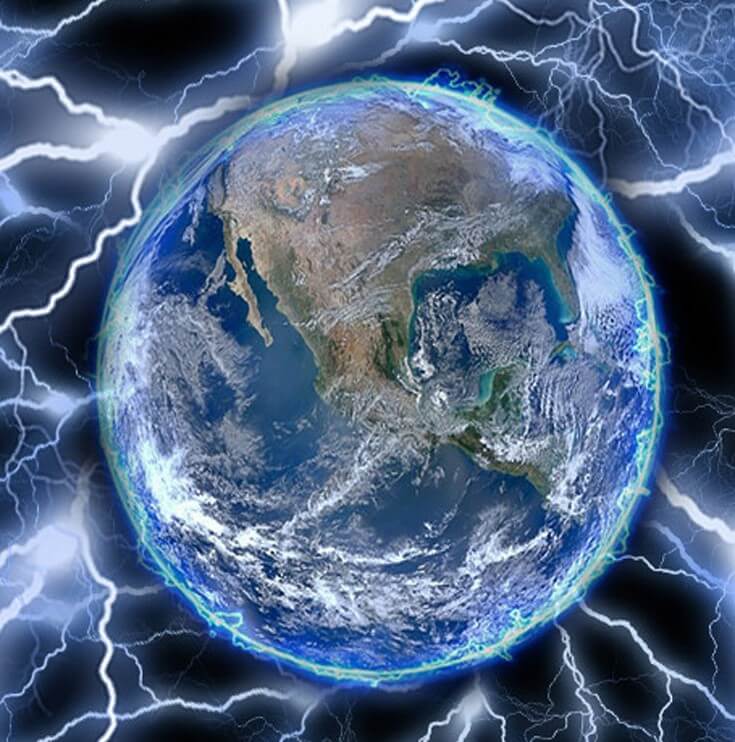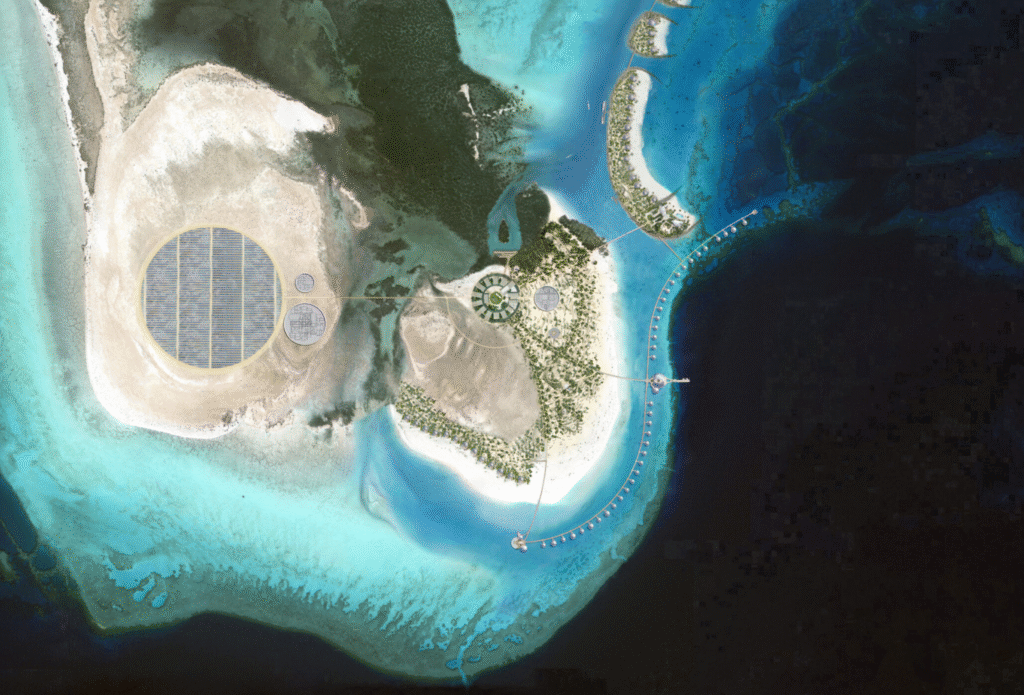Desalination and power plant powered by the sun in ultra-luxury Shebara, Saudi Arabia Saudi Arabia, a nation better known for its oil wealth, is rapidly reinventing itself as a marine sustainability player. Positioned between the ecologically sensitive Red Sea and the economically strategic Arabian Gulf, the Kingdom now has its sights set on becoming a […]
The post Ocean Action Forum 2025: Can Saudi Arabia Redefine the Future of Marine Stewardship? appeared first on Green Prophet.
Desalination and power plant powered by the sun in ultra-luxury Shebara, Saudi Arabia
Saudi Arabia, a nation better known for its oil wealth, is rapidly reinventing itself as a marine sustainability player. Positioned between the ecologically sensitive Red Sea and the economically strategic Arabian Gulf, the Kingdom now has its sights set on becoming a global hub for blue economy innovation.
As part of this shift, Jeddah will host the Ocean Action Forum on October 27–28, 2025, at the Jeddah Hilton, gathering policymakers, scientists, investors, infrastructure developers, marine engineers, and climate strategists. The event promises not just high-level discussion but a new governance model for ocean-positive development in the Gulf.
According to the official agenda, the forum is designed to “shed light on key industry trends and issues, foster strategic partnerships, and explore cutting-edge solutions to safeguard marine ecosystems.”
Under Vision 2030, Saudi Arabia has made an unusual promise for a hydrocarbon nation: to restore coastal ecosystems, expand marine protected areas, scale mangrove forests, and build new “nature-compatible” infrastructure across its rapidly developing coastal cities.
Aquellum, a 15-minute city being developed on the Saudi coast
In early 2025, the Kingdom took a symbolic global step by assuming the Secretariat of the International Coral Reef Initiative (ICRI), giving it a front-row seat in shaping global coral protection policy. This forum is the first major marine policy gathering since that appointment, making it a signal moment in the Kingdom’s environmental diplomacy.
Related: We’ve reach coral reef tipping point
A Closer Look at Day One
The event opens with remarks by Dr. Vienna Eleuteri of the Saudi Red Sea Authority, who will set the tone with a call for “long-term marine stewardship backed by measurable outcomes and inclusive governance.”
From there, discussions quickly move from policy to hard innovation:
-
Marine Spatial Planning as Climate Defense
How do you balance tourism, fishing, shipping lanes, and offshore development without collapsing delicate marine ecosystems? Experts from KAUST, Fujairah Research Centre, and Buro Happold will debate new zoning and monitoring tools. -
Turning Ports into Reefs
In one of the most anticipated talks, Ocean Ecostructures CEO Ignasi Ferrer will present how AI, robotics, and bio-designed structures can convert concrete seawalls and breakwaters into living habitats, transforming industrial coastlines into biodiversity zones. -
Aquaculture Reimagined
With global pressure on wild fisheries, KAUST’s Aquaculture Development Program will outline how precision aquaculture and filtration technologies could make farmed fish part of a regenerative, not extractive, ocean economy.
Mangroves, Microplastics and Machine Learning
Saudi Arabian mangrove forests can help mitigate climate change
Late-afternoon sessions focus on restoration at scale, including Saudi-led platforms like Netzero’s Mangrove Action initiative, which uses satellite monitoring and digital tracking tools to verify coastal restoration outcomes—a shift toward data accountability for nature projects.
There will also be a tech spotlight on microplastic-free aquaculture, with filtration innovators from TraCon GmbH showcasing Aqua BIO Kat, a new German-engineered system designed to reduce contamination and protect human health through clean water cycles.
From Coastal Luxury to Coastal Responsibility
Saudi Arabia’s massive Red Sea tourism projects—including NEOM, the Red Sea Global regenerative tourism initiative, and luxury island developments—have drawn both investment interest and ecological scrutiny. The Ocean Action Forum appears to be the Kingdom’s answer: framing development and marine restoration not as opposing forces, but as parts of a “regenerative coastal economy.”
The success of the event will depend on what happens after the panel lights turn off—whether restoration targets, monitoring systems, and local community roles become embedded in policy, not just PowerPoint slides.
But one thing is clear: Saudi Arabia is no longer observing the marine sustainability movement from the sidelines. It is positioning itself to lead it. The Ocean Action Forum 2025 at the Jeddah Hilton may well be the moment the region begins to define its own blueprint for marine resilience—not borrowed from Europe or island nations, but rooted in the realities of the Red Sea and Arabian Gulf.
The post Ocean Action Forum 2025: Can Saudi Arabia Redefine the Future of Marine Stewardship? appeared first on Green Prophet.
Recommended Story For You :

Bringing Dead Batteries Back To Life Is Simple!

SEPTIFIX to the Rescue! Say Goodbye to Problems and Hello to Savings

Ecomposing of Paper Towels Produce Methane Gas

A Leading Cause Of Global Warming!

A cleaner world where energy is abundant essentially free

and sourced directly out of the inherent power of the space surrounding us.

MIT Discovery can cut power bills by 65%

Easy DIY Power Plan Will Change Our World Forever

Discover the World with Our Passionate Geography Teacher in Memphis!




